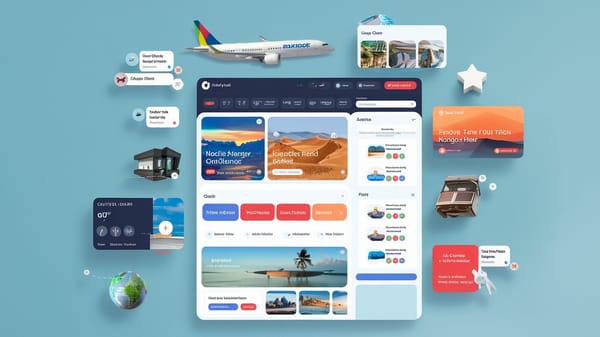What Is the Time Cost in project management & How to Optimize It Effectively

In the realm of project management, the concept of time cost is pivotal, influencing both the efficiency and success of a project. Time cost refers to the financial implications associated with the time spent on a project, encompassing labor hours, resource allocation, and the overall project timeline. Effective management of time cost is crucial as it directly impacts the project's budget, scope, and quality, often referred to as the project management triangle.
To optimize time cost effectively, project managers must employ strategic planning and resource management. This involves creating a detailed work breakdown structure (WBS) to identify the necessary skills and resources for each task, ensuring that resources are optimally mapped and distributed.
Moreover, leveraging project management tools and software can significantly enhance time management. Tools such as Gantt charts and project dashboards provide visual aids and tracking mechanisms, enabling project managers to prioritize tasks, allocate resources efficiently, and monitor progress.
You can also visit Oncely.com to find more Top Trending AI Tools. Oncely partners with software developers and companies to present exclusive deals on their products. One unique aspect of Oncely is its “Lifetime Access” feature, where customers can purchase a product once and gain ongoing access to it without any recurring fees. Oncely also provides a 60-day money-back guarantee on most purchases, allowing customers to try out the products and services risk-free.
Oncely are hunting for the most fantastic AI & Software lifetime deals like the ones below or their alternatives:

Table of Contents
- Understanding Time Cost in Project Management
- The Concept of Time Cost
- Time-Cost Relationship
- Time-Cost Trade-Off
- Strategies for Optimizing Time Cost
- Tools for Managing Time Cost
- Effective Strategies for Optimizing Time Cost in Project Management
- Prioritizing and Allocating Resources Efficiently
- Utilizing Project Time Management Tools
- Implementing a Detailed Work Breakdown Structure (WBS)
- Monitoring and Controlling Project Costs
- Outsourcing Non-Core Activities
- Leveraging High-Skilled Resources Across Projects
- Conclusion
- Tools and Techniques for Time Management in Project Management
- Project Timeline Software
- Task Prioritization and Resource Allocation
- Scheduling and Timeline Development
- Monitoring and Adjusting Project Schedules
- Time-Cost Trade-Off Analysis
Understanding Time Cost in Project Management
The Concept of Time Cost
Time cost in project management refers to the duration required to complete a project, encompassing all phases from planning to execution. This concept is integral to the project management triangle, which balances time, cost, and scope as the three primary constraints of any project. Within this framework, time cost is the variable that can fluctuate based on the fixed parameters of scope and cost, especially in project-based billing models where a flat fee is charged.
In such models, the time taken to complete a project directly impacts the profitability and efficiency of the project team. The longer a project takes, the higher the time cost, which can erode profit margins if not managed effectively. Conversely, reducing the time cost can enhance profitability but may require additional resources or adjustments in project scope.
Time-Cost Relationship
The time-cost relationship is characterized by an inverse correlation: reducing the time to complete a project typically increases costs, while extending the timeline can reduce costs. This relationship is a fundamental aspect of project management, requiring careful consideration and strategic planning.
For instance, accelerating a project to meet a tight deadline might necessitate additional labor, overtime pay, or expedited shipping of materials, all of which increase costs. On the other hand, extending a project timeline can allow for more efficient resource allocation and potentially lower costs, but may also delay revenue generation or impact client satisfaction.
Time-Cost Trade-Off
The time-cost trade-off is a critical decision-making process in project management, where project managers must balance the competing demands of time and cost to achieve project objectives. This trade-off often involves allocating resources, such as personnel or equipment, to optimize efficiency and meet project deadlines.
Understanding the time-cost trade-off is essential for project managers to make informed decisions about resource allocation and project scheduling. For example, if a project is behind schedule, a manager might decide to allocate additional resources to accelerate progress, accepting the increased costs as a necessary trade-off to meet the deadline.
Strategies for Optimizing Time Cost
Effective time cost optimization involves several strategies that project managers can employ to enhance project efficiency and profitability. These strategies include:
- Resource Allocation: Allocating resources effectively is crucial for optimizing time cost. This involves assigning the right personnel and equipment to tasks based on their skills and availability, ensuring that resources are used efficiently and effectively.
- Scheduling and Planning: Developing detailed project schedules and plans can help manage time cost by identifying critical tasks and dependencies, allowing for better coordination and resource allocation. Tools like Gantt charts and project management software can aid in visualizing project timelines and identifying potential bottlenecks.
- Risk Management: Identifying and mitigating risks early in the project lifecycle can prevent delays and cost overruns, helping to keep time cost under control. This involves conducting risk assessments and developing contingency plans to address potential issues before they impact the project.
- Continuous Monitoring and Adjustment: Regularly monitoring project progress and making adjustments as needed can help optimize time cost. This involves tracking key performance indicators (KPIs) and using project management tools to identify areas where improvements can be made.
- Stakeholder Communication: Maintaining open and transparent communication with stakeholders can help manage expectations and ensure that any changes to the project timeline or budget are understood and agreed upon. This can prevent misunderstandings and conflicts that could impact project success.
Tools for Managing Time Cost
Project management tools play a vital role in managing and optimizing time cost. These tools provide project managers with the ability to plan, track, and adjust project timelines and resources effectively. Some popular tools include:
- monday.com: This platform offers features for project planning, scheduling, and resource allocation, helping teams manage time cost effectively by providing real-time insights into project progress and resource utilization.
- Microsoft Project: A widely used project management tool that offers comprehensive scheduling and resource management capabilities, allowing project managers to plan and track project timelines and costs effectively.
- Asana: A collaborative project management tool that helps teams organize tasks, set deadlines, and track progress, facilitating effective time cost management through improved communication and coordination.
By leveraging these tools, project managers can enhance their ability to manage time cost, ensuring that projects are completed on time and within budget while maximizing efficiency and profitability.
Effective Strategies for Optimizing Time Cost in Project Management
Prioritizing and Allocating Resources Efficiently
Efficient resource allocation is a cornerstone of optimizing time cost in project management. Proper allocation involves identifying the necessary resources—people, equipment, and time—at the project's inception. This step is crucial to prevent budget overruns and ensure timely project completion. Centralizing resources and information can help balance resources, avoid duplication, and reduce idling. By ensuring that resources are optimally mapped and distributed, project managers can minimize delays and enhance productivity.
Utilizing Project Time Management Tools
Project time management tools are essential for maintaining control over project timelines. Tools such as Gantt charts provide visual aids that help project managers track progress and adjust schedules as needed. These tools facilitate the breakdown of projects into manageable tasks, allowing for better prioritization and resource allocation. Project dashboards, for instance, offer a centralized location for tracking project information and metrics, helping managers stay on schedule without micromanaging.
Implementing a Detailed Work Breakdown Structure (WBS)
A detailed Work Breakdown Structure (WBS) is vital for optimizing time cost. By breaking down the project into smaller, manageable tasks, project managers can identify the specific skills and resources required for each task. This approach helps in assigning the right personnel to the right tasks, thereby avoiding delays caused by under-qualified resources. A well-structured WBS also aids in setting realistic timelines and milestones, which are crucial for tracking progress and ensuring timely project delivery.
Monitoring and Controlling Project Costs
Regular monitoring and control of project costs are essential to avoid overspending and ensure projects stay within budget. This involves creating a detailed project budget at the outset, accurately estimating costs, and allocating funds appropriately. Continuous monitoring allows project managers to identify potential cost overruns early and take corrective actions. This proactive approach not only helps in managing the financial aspects of the project but also ensures that time is utilized efficiently.
Outsourcing Non-Core Activities
Outsourcing non-core activities can be an effective strategy for optimizing time cost. By identifying tasks that do not add sustainable value to the business and are limited to a single project, project managers can outsource these tasks to lower-cost specialists. This approach not only reduces the time and resources spent on non-essential activities but also allows the project team to focus on core tasks that are critical to project success. Outsourcing can lead to significant cost savings and improved time management, contributing to overall project efficiency.
Leveraging High-Skilled Resources Across Projects
Distributing high-skilled resources across multiple projects can optimize time cost by minimizing the need for hiring expensive independent contractors. This strategy also provides an opportunity for other team members to gain valuable professional guidance, enhancing the overall skill set of the team. By strategically allocating high-skilled personnel, project managers can ensure that critical tasks are completed efficiently, reducing the likelihood of delays and cost overruns.
Conclusion
In conclusion, optimizing time cost in project management requires a multifaceted approach that includes efficient resource allocation, the use of project management tools, detailed planning, cost monitoring, strategic outsourcing, and leveraging skilled resources. By implementing these strategies, project managers can enhance productivity, reduce costs, and ensure timely project completion. These practices not only contribute to the success of individual projects but also improve the overall efficiency and effectiveness of project management processes.
Tools and Techniques for Time Management in Project Management
Project Timeline Software
Project timeline software is a critical tool for managing time effectively in project management. It provides visual aids and tracking mechanisms that help project managers and teams visualize the project schedule and track progress. One of the most popular tools in this category is the Gantt chart, which offers a graphical representation of a project schedule, showing the start and finish dates of the various elements of a project. This tool is essential for identifying the critical path, which is the sequence of tasks that must be completed on time to ensure the project is finished within the intended timeframe.
Task Prioritization and Resource Allocation
Effective time management involves prioritizing tasks and allocating resources efficiently. This process ensures that the most critical tasks are completed first, thereby avoiding costly delays and ensuring client satisfaction. By prioritizing tasks, project managers can allocate resources where they are most needed, optimizing the use of available time and resources. This approach not only helps in meeting deadlines but also in maintaining the quality of work throughout the project lifecycle.
Scheduling and Timeline Development
Creating a detailed project schedule is a fundamental aspect of time management. This involves defining the project's duties, milestones, and due dates. Estimating the duration of each task and identifying the project's critical path are crucial steps in this process. The critical path method (CPM) is a widely used technique that helps in determining the longest stretch of dependent activities and measuring the time required to complete them from start to finish. This method is instrumental in ensuring that all tasks are completed on time to achieve the project's objectives.
Monitoring and Adjusting Project Schedules
Regular monitoring and adjustment of project schedules are vital to effective time management. This involves comparing the project's progress to the schedule and making any necessary adjustments to ensure that the project is accomplished within the assigned time frame. Tools like project management software can provide real-time updates and alerts, helping project managers to detect potential issues early and take corrective actions promptly. This proactive approach minimizes the risk of delays and ensures that the project stays on track.
Time-Cost Trade-Off Analysis
Understanding the time-cost trade-off is essential for optimizing time management in project management. This analysis helps project managers and stakeholders know when and where to make trade-offs in workflows. By analyzing the relationship between time and cost, project managers can determine how to allocate resources during project planning and optimize projects throughout their lifecycles to keep tasks and activities on schedule. This insight allows project managers to speed up progress when necessary and deliver projects on time, even when faced with constraints.
In conclusion, the effective management of time in project management is facilitated by a combination of tools and techniques that help in planning, scheduling, monitoring, and adjusting project timelines. By leveraging project timeline software, prioritizing tasks, developing detailed schedules, and understanding the time-cost trade-off, project managers can ensure that projects are completed on time and within budget, ultimately leading to successful project outcomes.





